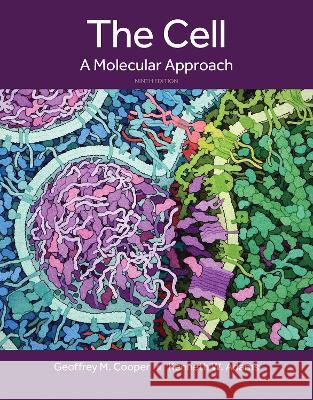The Cell: A Molecular Approach » książka
topmenu
The Cell: A Molecular Approach
ISBN-13: 9780197583722 / Angielski / Twarda / 2022 / 816 str.
Kategorie:
Kategorie BISAC:
Wydawca:
Oxford University Press, USA
Język:
Angielski
ISBN-13:
9780197583722
Rok wydania:
2022
Dostępne języki:
Ilość stron:
816
Waga:
2.44 kg
Wymiary:
27.58 x 22.3 x 3.86
Oprawa:
Twarda
Dodatkowe informacje:
Bibliografia











